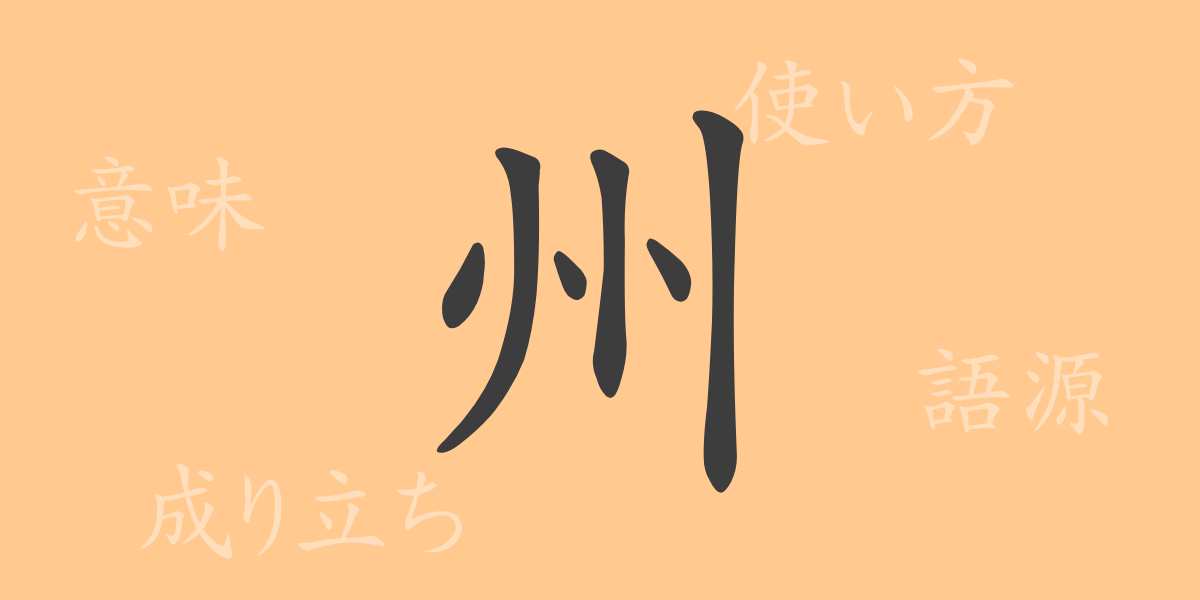Each commonly used kanji in Japanese carries its own unique history and meaning. The kanji “州(しゅう)” is no exception. This article delves into the rich background of this single character, detailing its usage and related idioms. For those seeking a deeper understanding of Japanese, this article will serve as a guide to navigating the world of “州(しゅう).”
Origin of 州(しゅう) (Etymology)
The kanji “州(しゅう)” originates from ancient China. It is derived from a pictograph representing a land near water, such as a river or lake. Over time, this character came to be used to designate geographical regions. In Japan, it has been adopted with similar meanings, reflecting geographical and administrative divisions.
Meaning and Usage of 州(しゅう)
In modern Japanese, “州(しゅう)” primarily refers to geographical areas. Specifically, it is often used to denote large regions formed by seas or rivers. Additionally, this kanji is used in the names of foreign places, such as the “states” of the United States or the “states” in Australia, indicating its use as a term for administrative divisions.
Readings, Stroke Count, and Radical of 州(しゅう)
The kanji “州(しゅう)” reflects the diversity of the Japanese language in its readings and structure:
- Readings: The on’yomi (音読み) is “シュウ,” and the kun’yomi (訓読み) is “す.”
- Stroke count: 6 strokes
- Radical: The radical is “巛” (さんずい), categorizing it among kanji related to water.
Idioms, Phrases, and Proverbs Using 州(しゅう)
There are numerous idioms, phrases, and proverbs in Japanese that include the kanji “州(しゅう).” These expressions are frequently found in literature and everyday conversation, reflecting the depth of the language. For example, “州を越える” means to overcome obstacles, and “無人の州” refers to an uninhabited land. These expressions illustrate the wide range of meanings that a single kanji can encompass.
Conclusion on 州(しゅう)
Through this article, we have explored the origins, modern usage, and idioms related to the kanji “州(しゅう).” Understanding the history and culture embedded in each word is essential for a deep comprehension of the Japanese language. We hope that whenever you encounter “州(しゅう),” you will reflect on its rich background and the meanings it carries.

























